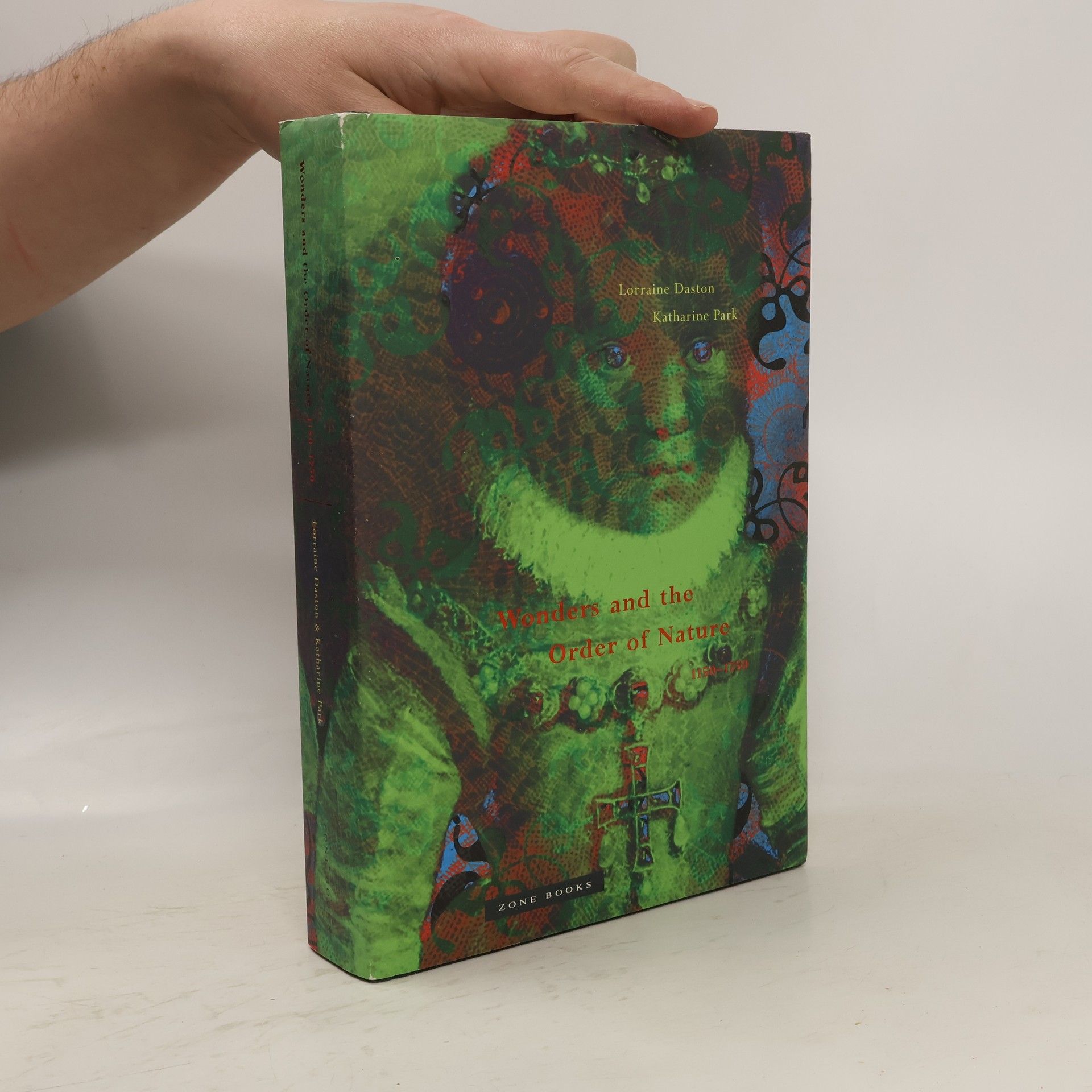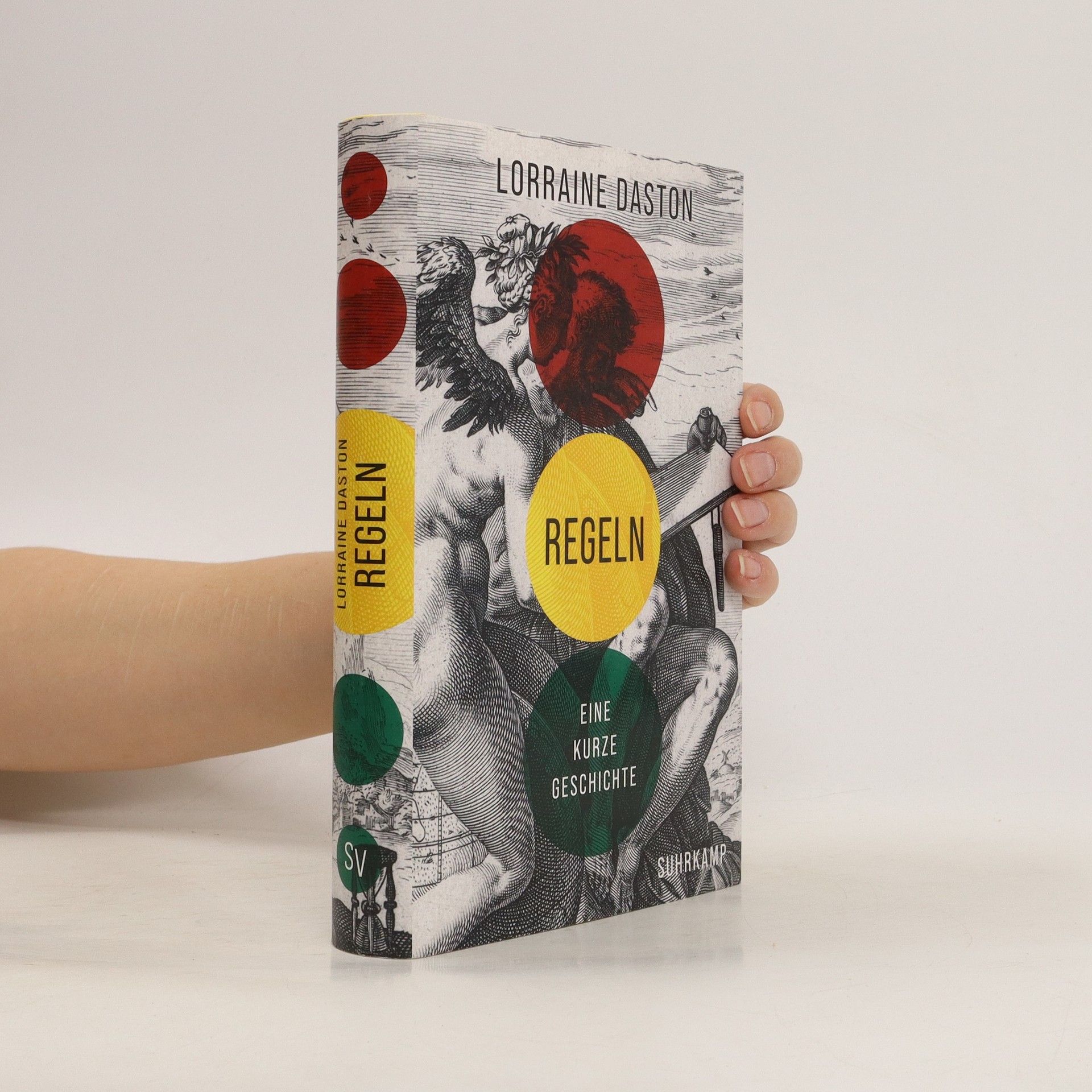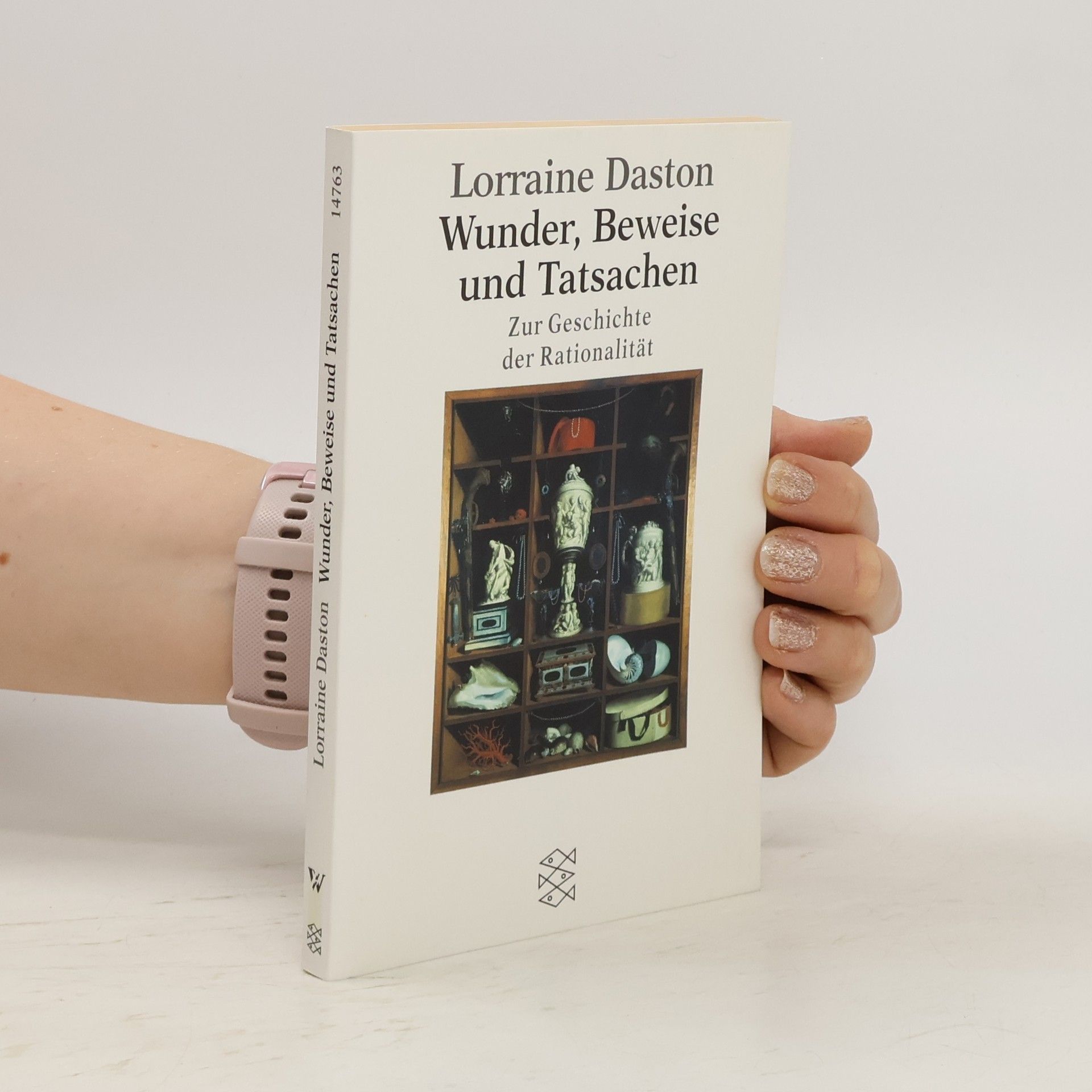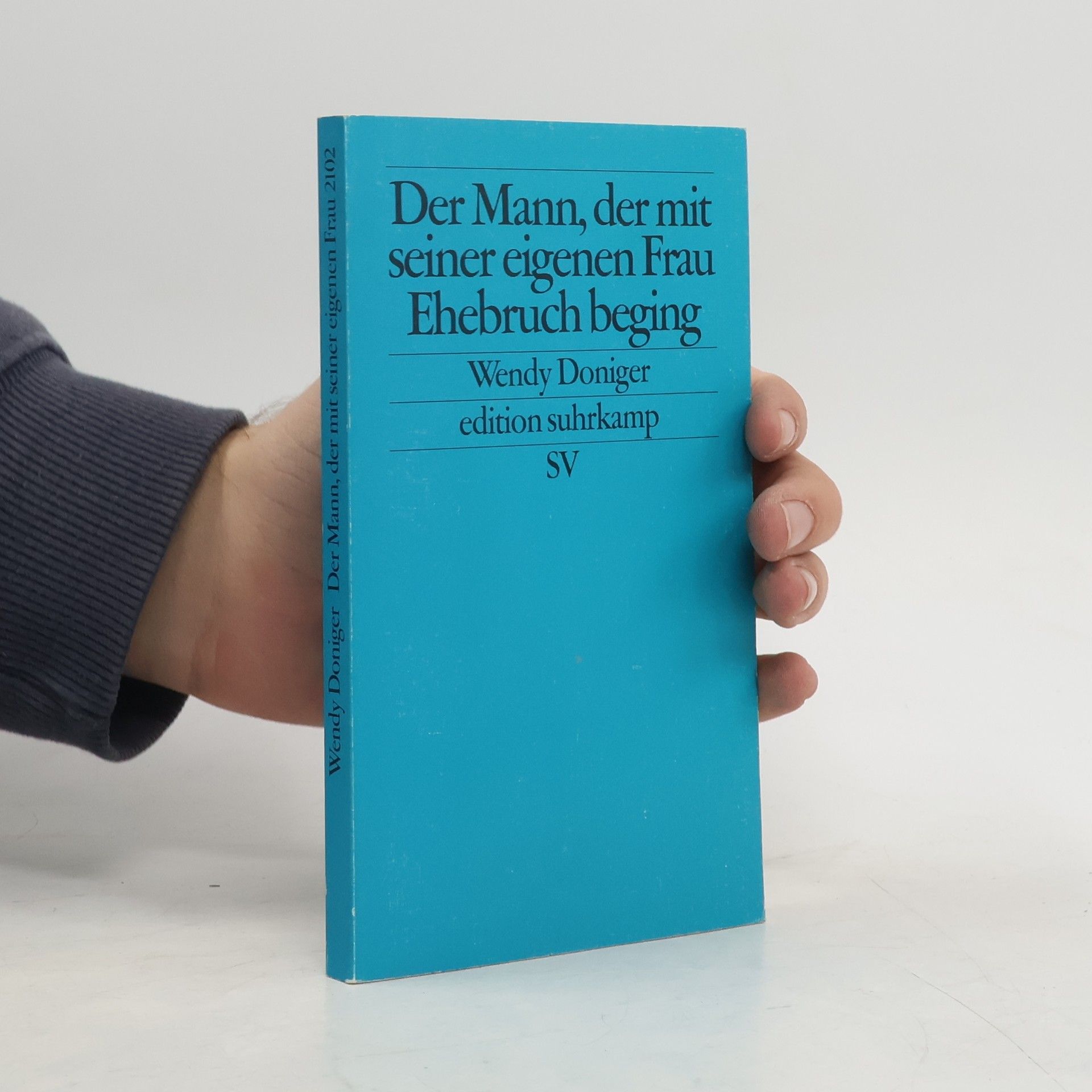Originally a doctoral dissertation submitted to the Department of the History of Science at Harvard University.
Lorraine Daston Book order (chronological)
Lorraine Daston is a distinguished historian of science, whose work delves into the intellectual landscape of Early Modern Europe. She expertly examines how scientific ideas and practices evolved, offering profound insights into the development of knowledge. Her rigorous scholarship illuminates the intricate relationship between thought, culture, and the scientific endeavor. Daston's research is essential for understanding the foundations of modern scientific inquiry.






Regeln
Eine kurze Geschichte | Über die Regeln unseres Lebens
Regeln ordnen fast jeden Aspekt unseres Lebens. Sie legen unsere Arbeitszeiten fest, bestimmen unser Verhalten im Straßenverkehr und ob es angebracht ist, zur Begrüßung die Hand zu geben oder die Wange hinzuhalten. Regeln organisieren die Riten des Lebens von der Geburt bis zum Tod. Nicht alle Regeln, die wir haben, mögen uns gefallen, und manche, die uns abgehen, sehnen wir herbei. Doch keine Kultur kann ohne sie auskommen. In ihrem reich bebilderten Buch zeichnet die Historikerin Lorraine Daston nach, wie sich Regeln in der westlichen Tradition seit der Antike entwickelt haben. Sie dokumentiert deren verwirrende Vielfalt anhand einer Fülle von Beispielen – von juristischen Traktaten über Militärhandbücher bis hin zu Kochrezepten –, entdeckt aber auch, dass es nur wenige Grundarten gibt, die über die Zeiten Bestand hatten: Algorithmen, Gesetze und Modelle. Und sie zeigt, wann Regeln funktionieren, wie sie sich verändern können und warum einige philosophische Fragen zu Regeln so alt sind wie die Philosophie selbst, andere hingegen so modern wie Rechenmaschinen. Ein souverän geschriebenes, fesselndes Buch über die Zwänge, die uns leiten – ob wir es wissen oder nicht.
Der Traum von der Einheit der Wissenschaft
Verleihung des Gerda Henkel Preises 2020
Prof. Dr. Lorraine Daston, eine der weltweit führenden Wissenschaftshistorikerinnen, war von 1995 bis 2019 Direktorin am Max-Planck-Institut für Wissenschaftsgeschichte in Berlin. Zuvor lehrte sie an renommierten Universitäten wie Harvard, Princeton, Göttingen und Chicago. Ihr Forschungsfokus liegt auf dem Phänomen „Wissenschaft“, dessen Wurzeln in Staunen und Neugierde zu finden sind, die bereits Aristoteles als Grundlage wissenschaftlichen Wissens ansah. Daston kombiniert philosophische Fragestellungen mit historischer Kontextualisierung, um grundlegende Kategorien der Wissenschaft wie Naturgesetz, Rationalität und Objektivität sowie wissenschaftliche Praktiken wie Beobachtung, Messung und Experiment in ihrer historischen Dimension zu untersuchen. Ihr umfangreiches Werk reicht thematisch und zeitlich von der Frühen Neuzeit bis ins 21. Jahrhundert und umfasst Aspekte wie die Wunderkammern des Barock und wissenschaftliche Quantifizierung. Ihre Publikationen zeichnen sich durch analytische Schärfe, tiefes Fachwissen und klare Argumentation aus. Daston hat mit ihren innovativen Forschungen nicht nur ihr Fach, sondern auch die Geisteswissenschaften nachhaltig beeinflusst und ihre Themen für aktuelle Debatten über Wahrheit und Beweis fruchtbar gemacht. In einer Zeit, in der die Glaubwürdigkeit wissenschaftlicher Erkenntnisse zunehmend hinterfragt wird, sind ihre wissenschaftshistorischen Arbeiten von großer Relevanz.
In Rules, historian Lorraine Daston traces their development in the Western tradition and shows how rules have evolved from ancient to modern times. Drawing on a rich trove of examples, including legal treatises, cookbooks, military manuals, traffic regulations, and game handbooks.
Der Verweis auf natürliche Ordnungen ist eine Konstante in menschlichen Normsetzungen. Scheinbare Verletzungen des »Natürlichen« durch menschliche und nichtmenschliche Akteure rufen starke emotionale Reaktionen hervor: Staunen, Furcht oder Schrecken. Doch wie kann Natur zum Vorbild menschlicher Normierungen werden? Verbirgt sich dahinter nicht einfach ein naturalistischer Fehlschluss? Lorraine Daston zeigt, dass die Naturalisierung von Ordnung tief mit dem Bedürfnis des Menschen nach Repräsentation verbunden ist. Natur erscheint als Modell menschlicher Normierungen nicht nur deshalb unvermeidlich, weil die Ordnungen der Natur stets in der Erfahrung präsent sind. Natur eignet sich in ihrer unendlichen Vielfalt auch als Vorbild aller denkbaren kulturellen Normen.
Objectivity
- 504 pages
- 18 hours of reading
The emergence of objectivity in the mid-nineteenth-century sciences, as revealed through images in scientific atlases-a story of how lofty epistemic ideals fuse with workaday practices.
Wunder und die Ordnung der Natur
- 480 pages
- 17 hours of reading
Seit den siebziger Jahren sind Lorraine Daston und Katherine Park einem schillernden Forschungsgegenstand nachgegangen: dem Wunderbaren. Daß sie sich dabei weder in den faszinierenden Details verloren haben noch in der Fülle des überwältigenden Stoffs ertrunken sind, gleicht selbst schon einem Mirakel - denn ob Basilisken, die mit Blicken töten können, finstere Völker, die jeden Seemann in seiner Landessprache ansprechen und den Verblüfften am liebsten gut gewürzt verspeisen, Magneten, die Eisennägel aus den Schiffen ziehen, Einhörner, die nur von Jungfrauen zu fangen sind oder sagenhafte Herrscher, versunkene Kulturen, wundersame Steine, seltsame Tiere, Hermaphroditen und absonderliche Mißgeburten - es gibt nichts, was die menschliche Fantasie so beflügelt hat, wie eben das, was neu und kaum zu glauben ist. Der ebenso anregende wie atemberaubende Streifzug der beiden Autorinnen durch die Welt des Wunderbaren und Bizarren beginnt bei den ersten Zeugnissen von un- und übernatürlichen Phänomenen in Topographien, Chroniken und anderen Schriften und reicht bis zur Stellung des Wunderbaren bei Medizinern, an Höfen, in der Religion, in der Naturphilosophie und der beginnenden Psychologie der Aufklärung. Denn natürlich wurden Wunder nicht nur bestaunt, sondern auch in Weltsysteme eingebunden und in vielfältiger Weise instrumentalisiert.
Wunder, Beweise und Tatsachen
- 184 pages
- 7 hours of reading
Die Biographie der Athene oder Eine Geschichte der Rationalität · Wunder und Beweis im frühneuzeitlichen Europa · Die kognitiven Leidenschaften: Staunen und Neugier im Europa der frühen Neuzeit · Angst und Abscheu vor der Einbildungskraft in der Wissenschaft · Objektivität und die Flucht aus der Perspektive · Die moralischen Ökonomien der Wissenschaft
Wonders and the Order of Nature 1150-1750
- 512 pages
- 18 hours of reading
Wonders and the Order of Nature is about the ways in which European naturalists from the High Middle Ages through the Enlightenment used wonder and wonders, the passion and its objects, to envision themselves and the natural world. Monsters, gems that shone in the dark, petrifying springs, celestial apparitions -- these were the marvels that adorned romances, puzzled philosophers, lured collectors, and frightened the devout. Drawing on the histories of art, science, philosophy, and literature, Lorraine Daston and Katharine Park explore and explain how wonder and wonders fortified princely power, rewove the texture of scientific experience, and shaped the sensibility of intellectuals.
edition suhrkamp - 2102: Der Mann, der mit seiner eigenen Frau Ehebruch beging
- 146 pages
- 6 hours of reading
1999 145 S. Softcover Frankfurt/M., Suhrkamp,


